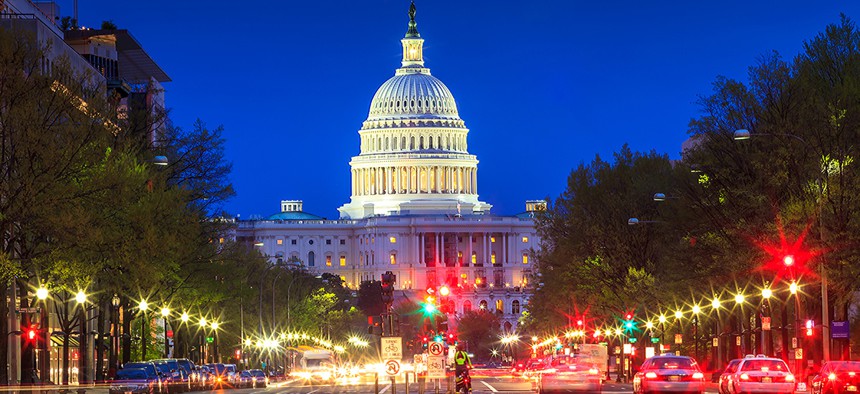Lawmakers Want Social Media Vetted for All Visa Applicants and Ask More Mar-a-Lago Questions

f11photo/Shutterstock.com
This week, legislators addressed issues related to visas, Mar-a-Lago, cellphone privacy and more.
As Congress heads out for its first recess, a freshman’s first bill would require the Homeland Security Department to vet social media accounts for anyone applying for a U.S. visa.
In addition to reviewing all of an applicant’s publicly available social media, the Visa Investigation and Social Media Act, proposed by Rep. Jim Banks, R-Ind., also would require:
- Interviews for applicants 11 years old and up.
- Fraud-prevention checks for the applicant’s documentation.
- English translations of documentation supplied by the applicant.
- DHS employees deployed to visa-issuing embassies and consulates.
- A Government Accountability Office review 18 months after enactment.
Social-media screening isn’t a new idea, but the focus has been typically narrower than “any individual applying for a visa to the United States.” Under the Obama administration, DHS examined the accounts of Syrian refugee applicants flagged for enhanced vetting. More recently, Homeland Security Secretary John Kelly told Congress the department may start asking for social media passwords as part of President Donald Trump’s extreme vetting program for people visiting from seven majority-Muslim countries.
That Whole Mar-a-Lago Thing
It’s not going away yet. House oversight committee Chairman Jason Chaffetz, R-Utah, asked White House Chief of Staff Reince Priebus for more details about the security of Mar-a-Lago and details about what the president and Japanese Prime Minister Shinzo Abe did that night, including where they spoke and what documents they looked at. Any response is due by Feb. 28.
Other congressional inquiries into White House security protocols have been penned by Democrats.
Stop Spying on Me, Phone
A pair of bills aims to protect the privacy of smartphone and wearables users. The Geolocation Privacy and Surveillance Act—or GPS Act, for short—would sketch out rules for obtaining and disclosing an individual’s location data from phones or other GPS-enabled devices. Law enforcement agencies, for example, would need a warrant.
“Outdated laws shouldn’t be an excuse for open season on tracking Americans, and owning a smartphone or fitness tracker shouldn’t give the government a blank check to track your movements,” said Rep. Ron Wyden, D-Ore., in a statement. The bill’s other co-sponsors include Reps. John Conyers, Jr., D-Mich., and Chaffetz.
Chaffetz also introduced the Cell Location Privacy Act, which would limit the use of cellphone interceptor technology called stingrays. The bill would require law enforcement agencies to obtain warrants before use but does allow exceptions for foreign intelligence surveillance.
How Do You Measure a Cyberattack?
“Attacks have levels, from nuisance to act of war,” Rep. Joe Wilson, S.C., said in a statement introducing the Cyberattack Standards Study Act. The bill would charge the director of national intelligence—with the FBI director and the Homeland Security and Defense secretaries—to determine how to measure and quantify the damage caused by an incident so an appropriate response can be figured out.
Tech Group Salutes 'Tech Champions'
Sen. Cory Booker, D-N.J., and Rep. Will Hurd, R- Texas, received Tech Champion awards from the industry group CompTIA. The group acknowledged Booker’s tech workforce initiatives such as the LEAP Act, which gives employers credits for apprenticeships, and Hurd’s push for a Cyber National Guard.
NEXT STORY: States still seek answers on election tech






